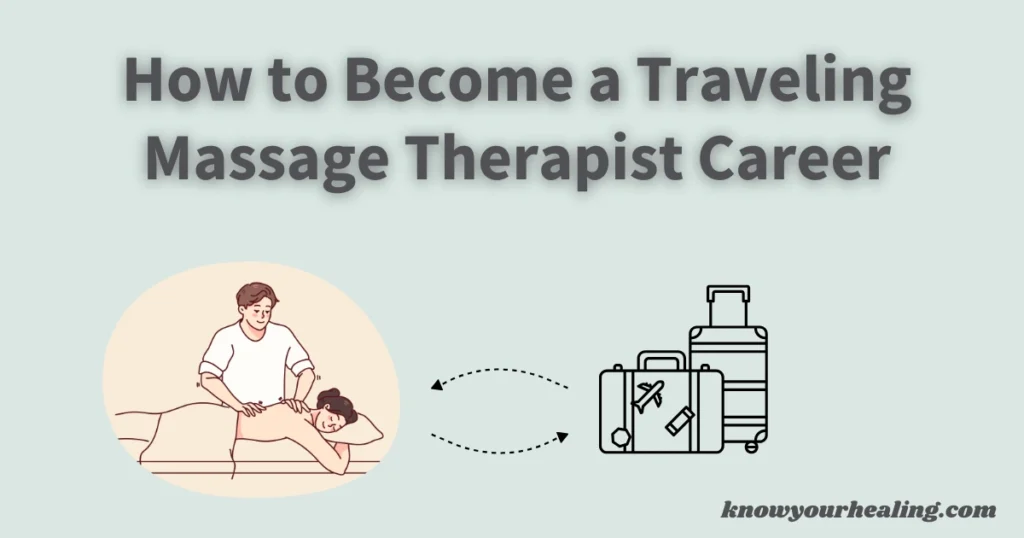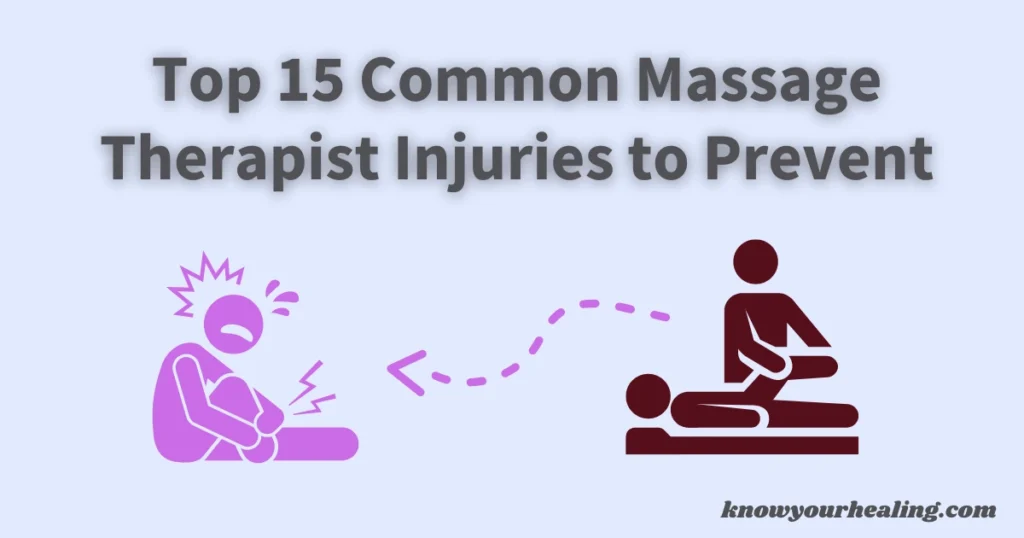How to become a traveling massage therapist: Traveling as a massage therapist offers a unique blend of adventure and professional growth.
Massage therapists who travel get the opportunity to explore diverse cultures and environments while practicing their craft.
To become a traveling massage therapist, one must complete an accredited program and usually pass a state exam.
Each state may have different requirements, so it’s essential to research where you want to work.
Traveling massage therapists can choose where to practice and how long to stay in one place.
Some may live in a vintage Airstream, while others might spend months abroad, like working as a massage therapist in a specific country.
This career path requires adaptability and strong business management skills to succeed.
The financial potential of a traveling massage therapist can be lucrative, though it is crucial to balance travel expenses with income.
With the proper planning and dedication, this career can lead to a life of varied experiences and personal fulfillment.
Traveling massage therapists can thrive in their unique profession by providing exceptional services worldwide.
Understanding the Role of a Traveling Massage Therapist

Traveling massage therapists bring their services directly to clients, providing flexibility and convenience. They adapt to various environments and cater to diverse client needs, often outside traditional settings.
Their role demands strong adaptability and a varied skill set.
Essential Skills and Attributes
Travel massage therapists must possess excellent communication skills to understand client needs and explain treatment goals.
A strong foundation in different massage techniques is essential for success in varied environments.
They also need exceptional time management skills to maintain punctuality while traveling between appointments.
Flexibility and the ability to adapt to new environments are crucial.
Professionalism is vital, especially when working in clients’ personal spaces.
Obtaining a massage therapy license is key; additional certifications can enhance credibility.
Common Responsibilities
A travel massage therapist provides mobile services, often using portable massage tables to set up in diverse locations like homes, offices, and hotels.
They manage their schedules, ensuring seamless transitions between appointments.
Ensuring the equipment is clean and ready for each session is a top priority.
Administrative tasks include handling bookings, maintaining patient records, and managing payments.
They may also offer services on cruise lines or at events, adapting setups as needed.
Professional liability insurance is necessary to safeguard against potential risks in various work settings.
Educational Requirements and Certifications
Pursuing a traveling massage therapist career involves meeting specific educational requirements and obtaining various certifications.
These qualifications ensure the therapist has the necessary skills and knowledge to provide professional services in diverse settings.
Accredited Massage Therapy Programs
Massage therapy program enrollment is typically the first step for aspiring therapists.
These programs, often offered by technical colleges or specialized massage schools, cover essential topics like anatomy, physiology, and different massage techniques.
A high school diploma is generally required for admission.
Additionally, completing a massage therapy program provides a strong foundation, equipping students with the skills needed for a successful massage career.
National Certification and State Licensure
After completing their education, therapists must often pass a certification exam like those offered by the National Certification Board for Therapeutic Massage and Bodywork.
Certification demonstrates competence in the field.
Each U.S. state has licensing requirements for massage therapists, often managed by state boards.
Therapists must understand the scope of practice and legal regulations in each state where they wish to practice.
Some states may require a background check or specific coursework on state laws.
Continuing Education
To maintain licensure, therapists should participate in continuing education.
This involves taking additional courses to stay updated on best practices and innovative techniques.
Joining professional associations like the American Massage Therapy Association can provide access to resources and networks relevant to this ongoing education.
These updates can significantly benefit travel massage therapists, as staying current enhances their professional liability and ability to serve a variety of settings.
Building Experience and Expertise

Building experience and expertise is crucial for those seeking a successful career as a traveling massage therapist.
Developing practical skills and specializing in specific massage modalities can significantly enhance one’s professional journey.
Gaining Practical Experience
Practical experience is critical in any massage therapy career.
A prospective traveling massage therapist should complete a comprehensive massage therapy program.
This foundational training, often offered at technical colleges, ensures a strong understanding of therapeutic techniques and client care.
After formal education, working in various settings, such as spas or clinics, allows aspiring therapists to gain hands-on experience.
These environments help them refine their skills and understand client needs in different scenarios.
On-the-job experience also builds a diverse client base, which is crucial for mobile practitioners who need to attract and retain clients on the go.
Networking plays a significant role in gaining experience.
Professional associations, like the American Massage Therapy Association, offer resources and connections that can lead to more opportunities.
By joining these groups, massage professionals can stay updated on the latest industry trends and best practices.
Specializing in Modalities
Specializing in specific massage techniques can set a traveling massage therapist apart from traditional practitioners.
Specialization requires additional training in deep tissue, sports massage, or shiatsu.
Certifications from recognized bodies, like the National Certification Board, validate these special skills and increase professional credibility.
Choosing a specialization should align with one’s career goals and the needs of potential clients.
For instance, specializing in techniques desired by business travelers or cruise lines can open new career paths and increase service demand.
Emphasizing niche expertise also helps target a specific market segment, making one’s services more appealing.
Developing this expertise enhances a therapist’s ability to provide effective treatment, thus building a reputation that can lead to more work opportunities across different states.
Becoming a traveling massage therapist involves understanding various legal and business aspects.
Key areas to focus on include learning about independent contractor laws, creating a solid business plan, and securing proper insurance coverage to protect against liabilities.
Understanding Independent Contractor Laws
A traveling massage therapist often works as an independent contractor. This role means understanding local and national laws that govern this form of employment.
Different states have varying rules and requirements, making it essential to know the laws in each state where services will be provided.
Being aware of the implications for taxes and benefits as an independent contractor is essential.
They must handle their taxes, which may require quarterly payments to the IRS.
Carrying a massage therapy license is crucial to maintaining legal practice.
Consulting with a tax professional or legal advisor can help you navigate these responsibilities.
Creating a Business Plan
A business plan is a roadmap for a successful massage therapy career.
A clear plan helps identify target markets—such as business travelers or cruise lines—and outline strategies for reaching them.
Include details about the types of services offered, pricing strategies, and marketing plans.
Understanding different environments and how to adapt services to other settings can set a traveling massage therapist apart.
Building a mobile massage therapy practice also requires planning for logistics like transportation and booking systems.
Insurance and Liability
Insurance is vital for protecting a massage therapy business.
Liability insurance safeguards against potential claims from clients. Coverage should include property damage and personal injury to clients, especially in mobile settings.
Professional liability is different from personal insurance. It covers errors during the practice that may lead to claims.
Various professional associations, like the American Massage Therapy Association, offer insurance plans tailored to massage professionals.
Comparing plans to find the best fit ensures peace of mind and financial security.
Marketing Your Traveling Massage Services
Marketing your services is crucial for a traveling massage therapist to build a solid client base and maintain steady work.
It involves developing a distinct brand identity, leveraging online platforms, and retaining clients through effective networking.
Developing a Brand Identity
A brand identity defines how therapists present themselves and stand out in the market.
It includes choosing a unique business name and designing a professional logo.
They should communicate their specialty, whether therapeutic massage or mobile services, to identify their target audience.
A consistent visual theme across business cards, websites, and social media reinforces this identity.
Clear messaging highlighting their qualifications, such as being a licensed massage therapist or holding board certification, helps establish credibility.
Online Presence and Social Media
Establishing an online presence is essential for visibility.
Creating a website allows potential clients to learn about services, pricing, and scheduling.
The website should include testimonials and professional affiliations like the American Massage Therapy Association to build trust.
Social media platforms offer a space to engage directly with prospective clients.
Therapists can showcase their skills by sharing educational content or relaxation tips.
Consistently posting helps maintain visibility, while platforms like Instagram can be particularly beneficial for visual engagement.
Networking and Client Retention
Networking helps therapists expand their reach and secure more work.
Joining local professional associations or groups for massage professionals offers opportunities to connect with others in the field. This can lead to referrals or collaborations.
A strong client retention strategy involves maintaining communication and offering personalized services.
Keeping detailed client records can aid in providing a customized experience and fostering long-term relationships.
Regular follow-ups or loyalty discounts can encourage repeat business and provide an excellent way to sustain a thriving career path.
Final Thoughts
Becoming a traveling massage therapist opens a world of opportunity and adventure. This career offers flexibility and can be fulfilling for those who love exploring new places.
Key Considerations:
- Licensing: Ensure you have a massage therapy license for each area you wish to work. Requirements vary significantly by location.
- Skills: Excellent communication skills are essential to connect with diverse clients.
- Lifestyle: Be prepared for a lifestyle that is always on the move, which can be exciting and challenging.
Joining online forums and networks can help you learn from experiences shared by others in the field. These provide valuable insights into what to expect and how to prepare.
Investing in quality travel gear that supports a mobile career is also beneficial. An efficient setup can enhance the traveling experience by providing comfort and ease.
Becoming a traveling massage therapist requires skill in massage techniques, adaptability, and resourcefulness. Transitioning seamlessly from one location to another demands careful planning and attention to detail.
As one wraps up the journey of understanding this career path, exploring resources such as Know Your Healing can offer deeper insights into healing professions and techniques.




